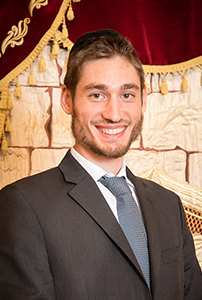Parasha Thoughts
By Rabbi Aviad Boukris
If we were asked to give examples of the different Mitzvot of the Torah, we would mention the basic Mitzvot of Shabbat, Teffilin, Yom kippur, eating kosher foods and so on.
In last week’s Parasha, we read about Bnei Yisrael preparing themselves for the greatest event in Jewish history, Matan Torah. One would think that in this week’s Parasha the Torah would introduce the more basic-or so to speak important Mithzvot-however, our Parasha starts off with the Mitzvah of Eved Ivri, a Jewish servant, and continues with the different Mitzvot of Ben Adam LeChavero. These are Mitzvot concerning our interactions with one another. The Parasha doesn’t mention Tzitit, Tefillin, Mezuza, or Shabbat, why is that?
Furthermore, the Rambam in his book, Sefer Hamitzvot, lists all the six hundred and thirteen Mitzvot in the order of importance of the Mitzva and not in the chronological order of the Torah, from there too, we see that those Mitzvot are not considered the “basic†ones.
The answer can be better understood with the following story. It is told about the Rosh Yeshiva of Baltimore, Rav Yitzchok Yaakov Rodrman ztâ€l , when he was learning in Slabodka Yeshiva, he was one of the outstanding talmidim of the Yeshiva. Once, while learning, he was caught up with a hard question and decided to ask Rav Leib from Wilkomir, who was an older Torah giant as of himself. Rav Leib right away tried to understand and answer the difficult question until late at night. Meanwhile, Rav Yitzchok Yaakov went back to the dormitory to sleep.
When Rav Yitzchok Yaakov woke up in the morning he saw his Rabbi, Rav Leib, standing patiently next to his bed, waiting for him to wake up… Rav Yitzchok Yaakov was shocked, “The Rav must have been waiting for me for hours; why didn’t you wake me up?†Rav Leib responded, “that would be Gezel Shein, like stealing your sleep!â€
Here we see the entire essence of Yiddishkeit summed up in the same way the two Luchot were written: the Mitzvot between us and Hashem and then the Mitzvot between us and our fellow friend. Therefore, the Torah mentions these Mitzvot right after Matan Torah: mitzvot which have to do with money matters, the rights of a Jewish servant, and the law concerning a convert, an orphan and a widow. The Torah mentions these mitzvot first in order for us to root in our hearts the fact that serving Hashem means observing both sides of the Luchot, as one.
Shabbat Shalom

